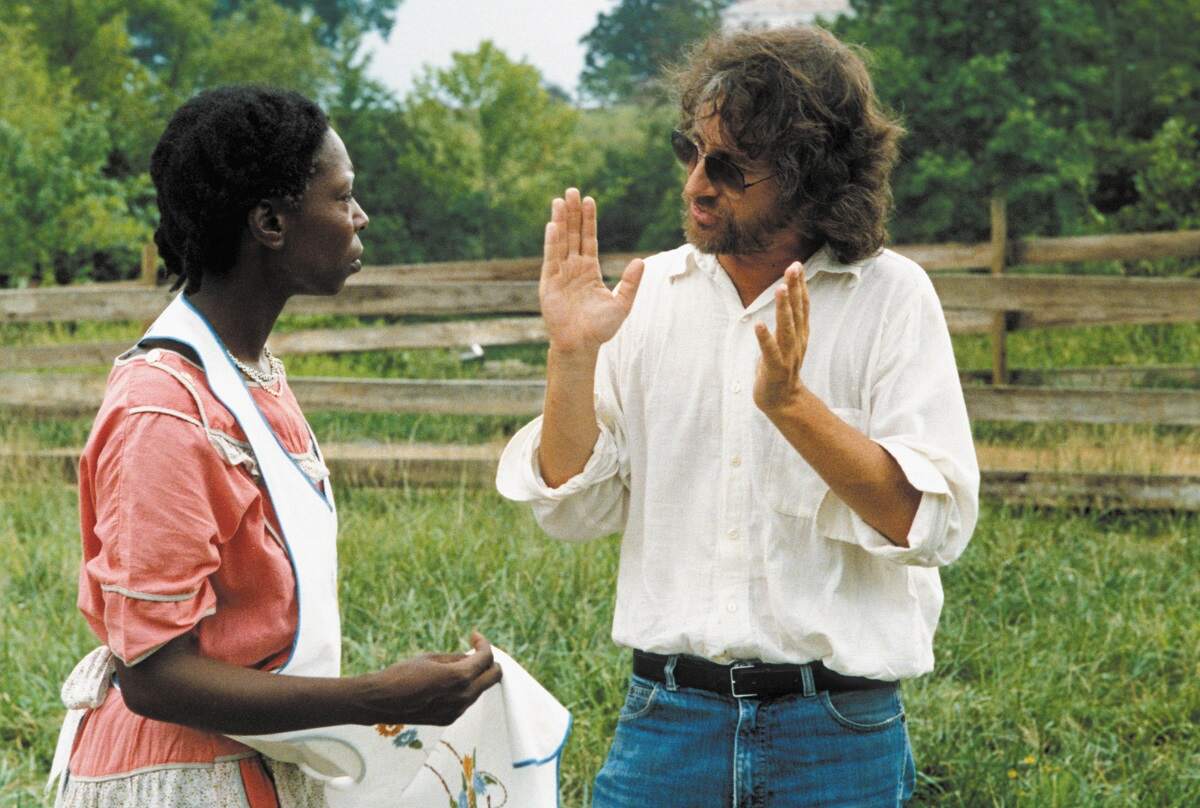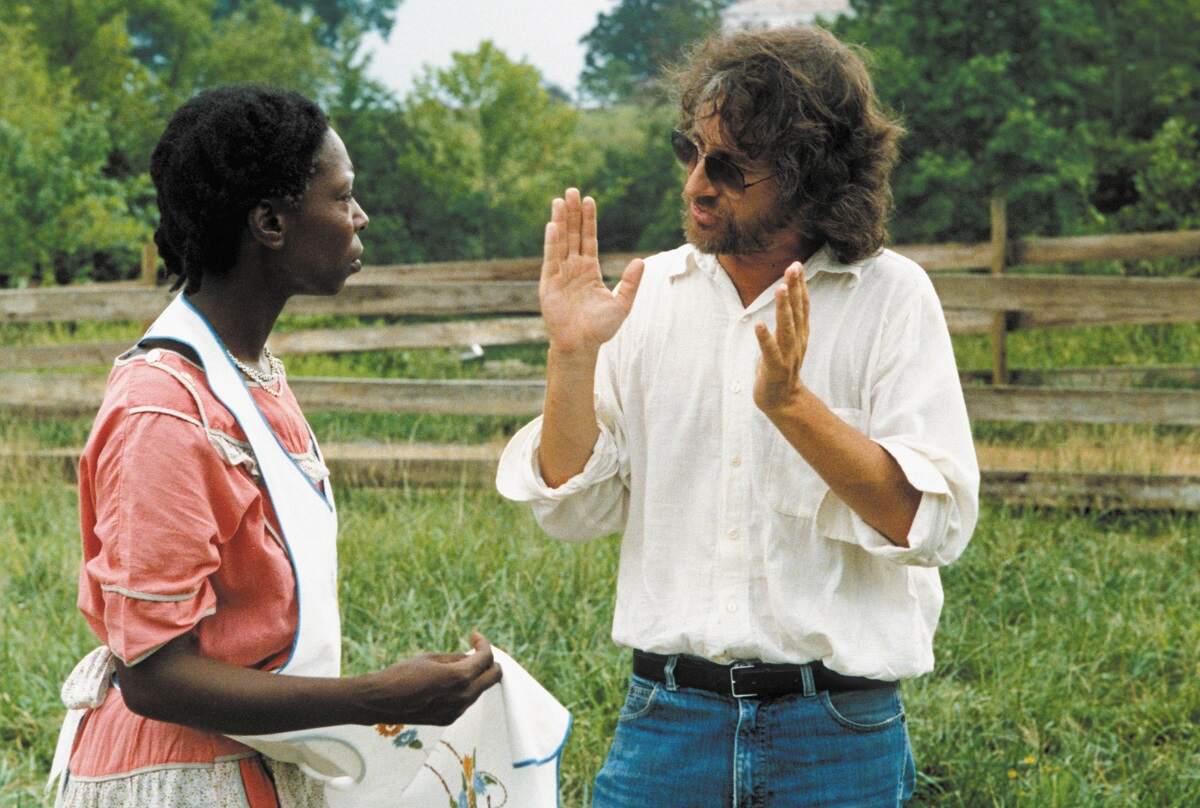
Steven Spielberg Stands Behind 1 ‘The Color Purple’ Choice That Angered the Book’s Author
The 1985 film The Color Purple was both a commercial and critical success, becoming a beloved classic. Based on Alice Walker’s Pulitzer Prize-winning novel, Steven Spielberg directed the film, which 11 Academy Award nominations. Even with such impressive achievements, The Color Purple met with criticism over its portrayal of Black men and women and its depictions of graphic sexual violence. And one change Spielberg made for the film left the author upset.
Steven Spielberg directed ‘The Color Purple’

The film follows Whoopi Goldberg as Celie Harris living in the southern United States early in the 20th century. She faces many hardships hardships. Celie is separated from her sister Nettie who she loves more than anyone. And she finds herself married off to an abusive man named Albert. Celie deals with traumatizing emotional and physical abuse at the hands of her husband and his son.
The only bright spot in Celie’s life is her relationship with Shug Avery, a singer who becomes her dear friend. Through Shug and the other women in her community, Celie finds her own power and her identity as a Black woman. With themes of racism and sexism, the film shines a light on Black women of the era.
The author says Steven Spielberg decided to ‘straightwash’ 1 relationship
The relationship between Celie and Shug was vital in both the novel and the film adaptation. In Walker’s novel, the relationship between the women is romantic and sexual. In the film, the relationship is shown to be a close friendship.
The controversial change in the film has been referred to as “straightwashing” and it drew criticism. The author of the book has expressed her disappointment with the change. Walker stated in interviews with NPR that the relationship between the two women was important to the story’s exploration of feminine liberation and sexuality.
Spielberg stands by his decision to keep the portrayal of the relationship between Celie and Shug platonic rather than sexual. He explained that he wanted to focus on themes of friendship and sisterhood between women instead of romantic love.
Both Spielberg and Walker have stated the decision to change Celie and Shug’s relationship was a creative choice and that there are often changes and omissions when adapting novels for film. Regardless of the controversy, the film adaptation of The Color Purple is still considered an epic, empowering portrayal of Black women in the early 1900s.
Other controversies surrounding the film
Even without the straightwashing, many criticized the choice of Spielberg as the director of The Color Purple. A white male director isn’t the obvious choice for a story about Black women in the Jim Crow era. There were concerns that the accuracy of the portrayal would be compromised.
Goldberg, who was nominated for an Academy Award for her performance in the film, had no problem with Spielberg as the director. In a 2019 New York Times interview, she explained that she never agreed with the skepticism. She pointed out that no one else in the film industry at the time was fighting to make the film.
A huge fan of Walker and her novel, Goldberg elaborated. “Whoever was out there at the time could have done it, but they didn’t,” she said. From her point of view, if all the people complaining about it could have made the film, why didn’t they? She said she couldn’t be mad because Spielberg made the film. She was just glad that someone did.


